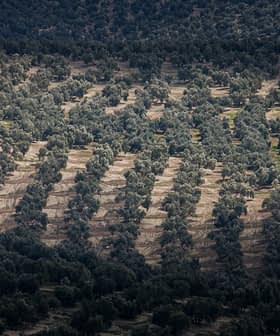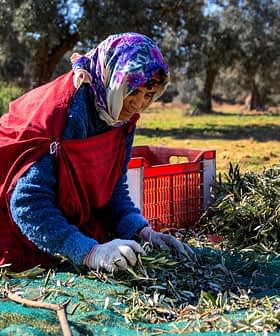Increasing olive production in the central Tunisian region of Gafsa is one strategy to diversify the region’s heavily mining-dependent economy, revitalize landscapes and promote development.
A historical oasis once heavily influenced by the Romans, Gafsa is one of Tunisia’s leading producers of phosphate, an essential ingredient in fertilizers, with more than 800 million tons of reserves. The sector contributes 4 percent to the national GDP and 15 percent to its annual exports.
Despite Gafsa’s phosphate wealth, its population has not benefitted from the sector, according to the World Bank, and has one of the country’s highest poverty and unemployment rates.
See Also:Leading Tunisian Bulk Olive Oil Exporter Pivots to Adding ValueA new generation of young people from the region are working with local officials to implement the Gafsa Vision 2050, which seeks to diversify the economy while restoring the mining-ravaged environment.
A 2012 report from the African Development Bank highlighted the potential for olive cultivation in the region, home to 700 hectares of oases classified as Globally Important Agricultural Systems by the United Nations Food and Agriculture Organization.
Along with almond and other vegetable cultivation, the bank estimated that renewed olive cultivation could create 3,400 agricultural jobs, providing direct benefits to 10,000 people and indirect benefits to another 60,000. About 300,000 people live in the region.
According to local media, farmers expect to harvest 88,000 tons of olives in the 2023/24 crop year, a significant increase from the 50,000 harvested last year, which yielded 12,000 tons of olive oil. The crop provides the region with around 3 billion dinars (€900 million) in revenue.
Unlike last year, which saw a decline in olive production due to drought and high temperatures, weather conditions were more favorable leading up to the current harvest.
Overall, officials in the country expect olive oil production to rise from last year’s disappointing yield of 180,000 tons. Generally, west-central Tunisia accounts for about 35 percent of annual olive oil production.
The Tunisian government announced plans to boost the country’s olive oil industry earlier this year. The goal is for Tunisia to produce 250,000 tons of extra virgin olive oil each year, export 200,000 tons of olive oil annually and raise domestic consumption to 50,000 tons annually by 2035.
So far, Tunisia has produced an average of 228,000 tons of olive oil each year over the past half-decade, including a record-high 440,000 tons in the 2019/20 crop year, according to data from the International Olive Council.
However, researchers have raised concerns regarding the impacts of climate change on Tunisia’s olive oil sector. In a 2022 report, the National Observatory for Agriculture estimated that olive oil production could fall by 70 percent if nothing is done to reduce greenhouse gas emissions.
A separate report from the Tunisian Forum for Economic and Social Rights found that climate change is also threatening Gafsa’s oases, with drought cited as the most significant concern from the lack of rainfall.
With the help of funding from the European Bank for Reconstruction and Development, 55 percent of Gafsa’s olive harvest comes from irrigated groves.
Officials estimate that irrigated olive groves will contribute to 53 percent of this year’s harvest in Tunisia, an estimated 106,000 tons of olive oil.
However, the impacts of the region’s increasingly hot and dry climate, combined with the phosphate industry’s depletion of water resources, have strained the farmers, who have led sit-ins and protests at phosphate mines.
In July, a group of farmers in Gafsa protested against irrigation cuts that lasted more than a month.
In response, President Kaïs Saïed called on public officials to “put an end as quickly as possible to the regular water and electricity cuts in several regions of the country,” including Gafsa, adding that “outages cannot be justified by routine maintenance operations, which should have been carried out before the summer season.”
Gafsa Vision 2050 has been one of the steps taken by the Tunisian government to bridge the gap between protestors and the mining sector by creating new opportunities, including developing the agricultural sector.
Despite the challenges, officials remain optimistic. Dorsaf Ben Ahmed, an agricultural production representative from the country’s agriculture ministry, expects Tunisia’s olive industry to flourish.
He spoke of the improvement in the general condition of olive trees in most production regions following heavy rainfalls recorded in May and June, along with successful efforts to curb pest infestations.









